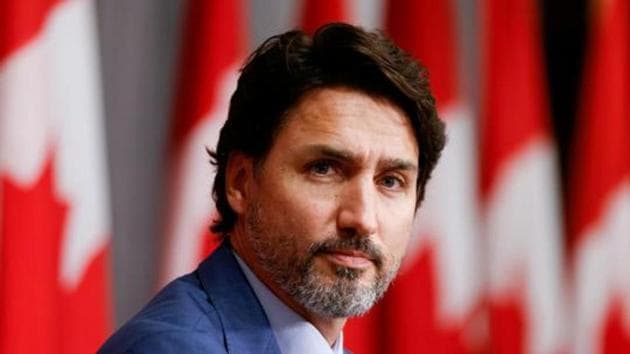Navigating Trudeau’s unacceptable intrusion and diaspora diplomacy
The Canadian PM’s remarks about the farmers’ protest, a domestic issue in India, are inexcusable. That Trudeau made them to pander to his closely-aligned political, sectional opinion neither diminishes their intrusiveness nor provides a veneer of justification.
Canada’s Prime Minister, Justin Trudeau, participated in a virtual event on Guruparb organised by a Sikh minister in his cabinet. It was attended by other Sikh ministers and Sikh members of the Canadian parliament. Trudeau chose to use the occasion to deliberately refer to the farm agitation in India and said: “The situation is concerning and we are all very worried about family and friends and I know that is the reality about many of you. Let me remind you, Canada will always be there to defend the right of peaceful protests. We believe in the value of dialogue and that is why we have reached out by multiple means directly to the Indian authorities to highlight our concerns.”

These remarks about a domestic issue in India are inexcusable. That Trudeau made them to pander to his closely-aligned political, sectional opinion neither diminishes their intrusiveness nor provides a veneer of justification. Indian nationals may have relatives in Canada as elsewhere, but a foreign leader must always remember that it is inherently inappropriate to refer to their situation unless they are facing systemic discrimination or violence. This has not been the case with the current protests.
India correctly called Trudeau’s comment “unwarranted”, but it would seem from the formulation used by the ministry of external affairs spokesperson that it was diplomatically engaged with Canada on this issue. He said, “It is best that diplomatic conversations are not misrepresented for political purposes”. It is intriguing that instead of engaging in diplomatic conversations, India did not dismiss Canadian demarches on the protests out of hand and refuse to entertain them.
That is the way to deal with friend or foe in such a context. It is all the more with a country that has traditionally shown little concern for India’s territorial integrity. Canada has Khalistani sympathisers among its political class. It has taken no action to restrain those who openly espouse its cause. Its excuse has been its laws guaranteeing freedom of expression. And, all this when it has denied visas to members of the Indian security forces who combat terrorism in Jammu and Kashmir. This is an occasion when Canada’s sanctimonious attitude needs to called out. The spokesperson’s reaction is not enough. The Canadian high commissioner should be summoned to South Block and India’s displeasure forcefully conveyed to him. India’s interest in attracting investments should not inhibit these actions for boardrooms are largely persuaded by returns on investments and profits.
While the situation arising from Trudeau’s comments is sui generis, there is a factor arising out of the government’s activist diaspora policy which deserves consideration. The Narendra Modi government has emphasised the importance of Indian-origin communities in India’s bilateral ties with many countries, particularly in western democracies. It has extolled their constructive role in fostering these relations.
In the past too, on some critical issues, these communities have used their heft in engaging significant sections of political opinion in their countries to convey India’s positions. This has been particularly so in the United States (US). The India-US nuclear deal is relevant in this context.
The political leaderships of these countries have recognised the growing importance of these communities in their domestic politics. Instead of taking umbrage at their ties with India, they have sought to use them to promote their party’s or their own interests. An extreme example of this phenomenon was President Donald Trump’s participation in the “Howdy Modi” event in the US in 2019. During Prime Minister Narendra Modi’s visit to Canada in 2015, Trudeau’s predecessor, Stephen Harper, accompanied him to a temple and a gurudwara. Harper was obviously seeking to enhance his popularity with the Indian community on the eve of a difficult election which he lost. As the Indian community becomes a political force in these countries, its attitudes on domestic Indian issues will inevitably become factors in bilateral ties. But, these will have to handled adroitly both by India and the governments concerned. Certainly, Trudeau’s intrusive manner is not the way forward.
The views expressed are personal






